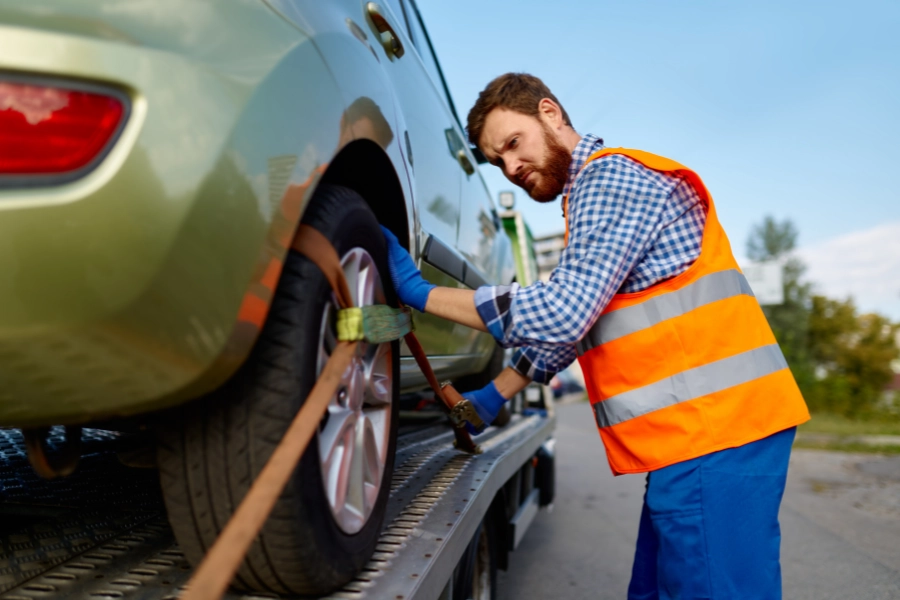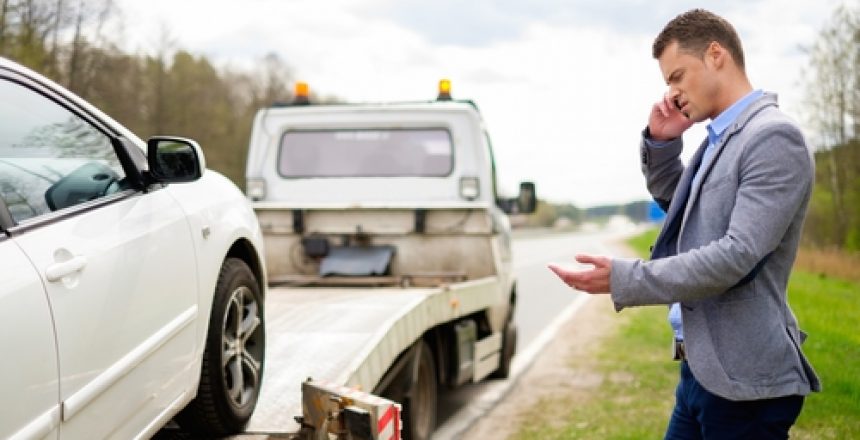Top 10 Tips on Towing for Insurance Companies
Discover the top 10 essential tips for efficiently towing vehicles for insurance companies. Master the best practices today.

Learning how to tow for insurance companies is crucial for businesses involved in the towing and hauling industry. This expertise not only streamlines operations but also ensures safe and efficient vehicle recovery, which is paramount for both service providers and insurance firms. Our focus will be on unveiling the top 10 essential tips that can significantly enhance towing practices for insurance companies. Mastering these best practices is key to excellence in the competitive towing landscape.
How to Tow for Insurance Companies
Insurance companies require towing services that are reliable, efficient, and compliant with all regulations. From maintaining cutting-edge towing equipment to ensuring drivers are expertly trained, these practices set the foundation for success. In the following guide, we'll dive deep into the essential tips every towing service working with insurance companies should implement.
List of Top Choices
- Proper Equipment and Maintenance
- Driver Training and Certification
- Insurance Coverage
- Compliance with Regulations
- Clear Communication with Customers
- Ethical Towing Practices
- Prompt and Efficient Service
- Damage Prevention
- Secure Towing
- Customer Satisfaction
Proper Equipment and Maintenance

- Regular inspections to catch and fix issues early
- Use of state-of-the-art safety features and towing gear
- Training for staff on equipment operation and maintenance
Maintaining a fleet of tow trucks in top condition is fundamental for insurance companies that rely on towing services. Regular inspections and early problem detection can drastically reduce downtime and prevent accidents. Equipping trucks with the latest safety features and towing gear not only enhances efficiency but also ensures the safety of the tow truck operators and the vehicles they are hauling. Furthermore, providing staff with thorough training on the correct operation and upkeep of the equipment ensures that every job is performed safely and efficiently.
Driver Training and Certification
- Enrollment in recognized towing and recovery training programs
- Knowledge of up-to-date towing regulations and standards
- Emphasis on customer service skills
For those learning how to tow for insurance companies, investing in driver training and certification is paramount. Not only does this elevate the professionalism and reliability of the service, but it also ensures that all operations comply with current towing regulations and standards. Insurance companies value towing services that prioritize not just the technical aspects of towing, but also the customer service experience. Certified drivers who are knowledgeable and courteous reflect positively on the towing service and, by extension, the insurance company they represent.
Insurance Coverage

- Adequate coverage for liabilities including accidents, property damage, and injuries
- Customized policies tailored to towing operations
- Regular review and adjustment of coverages as needed
Appropriate insurance coverage is critical when offering towing services to insurance companies. Adequate protection not only safeguards the towing business from potential liabilities arising from accidents, property damage, and injuries but also reassures the insurance companies of the tow service's reliability and preparedness for unforeseen circumstances. Tailoring policies to suit the unique demands of towing operations and conducting regular reviews ensures that coverage remains comprehensive, up-to-date, and effective in mitigating risks.
Compliance with Regulations
- Staying informed on local, state, and federal towing laws
- Ensuring all permits and licenses are current
- Commitment to legal and ethical towing practices
Navigating the complex landscape of regulations that govern towing practices is critical for services working with insurance companies. Compliance not only mitigates legal risks but also demonstrates a company's commitment to operating within the bounds of the law. Keeping abreast of changes in local, state, and federal laws, and ensuring all permits and licenses are up to date, are fundamental practices that underscore a towing service's credibility and reliability. This adherence to regulations fosters trust with insurance companies, knowing their clients are in compliant and capable hands.
Clear Communication with Customers

- Transparent information about fees, services, and timelines
- Proactive updates on towing status and any changes
- Availability for customer inquiries and feedback
Transparent and open communication forms the backbone of a successful towing service offering for insurance companies. Providing customers with clear and upfront information about fees, services, and expected timelines helps manage expectations and minimizes misunderstandings. Similarly, keeping customers informed about the status of their towing job and any potential changes fosters a sense of trust and reliability. Being readily available for customer inquiries and open to feedback further enhances the service quality, making the insurance companies' clients feel valued and well-served.
Ethical Towing Practices
- Avoiding predatory or coercive towing methods
- Respect for property rights and private property
- Adherence to fairness and transparency in all dealings
Adhering to ethical towing practices is fundamental for businesses aiming to provide services for insurance companies. This means avoiding any predatory or coercive methods that might exploit vulnerable situations. Respecting property rights ensures that all towing operations are conducted legally and with the consent of the vehicle owner whenever possible. Maintaining fairness and transparency in all dealings reinforces a company's reputation, making it a trusted partner for insurance firms. Ethical practices in towing not only foster positive relationships with clients and insurance companies but also enhance the professionalism of the towing industry as a whole.
Prompt and Efficient Service

- Timely response to service calls to minimize client inconvenience
- Efficient processes to ensure quick and safe vehicle recovery
- Use of technology to optimize routes and service delivery
Providing prompt and efficient service is crucial when towing for insurance companies. A timely response to service calls significantly minimizes the inconvenience experienced by the client. Implementing efficient processes and leveraging technology for vehicle recovery ensures that services are not only quick but also safe, reducing the risk of further damage. This level of efficiency is achieved through continuous improvement of operations and the use of advanced technologies to optimize routes and service delivery. Insurance companies value towing services that can consistently deliver this type of reliable and efficient service, as it enhances the overall customer experience for their clients.
Damage Prevention
- Use of the correct techniques and equipment for each towing job
- Regular training on new methods of preventing damage
- Conducting pre-tow inspections to assess and mitigate risks
Preventing damage to vehicles during towing is a top priority, especially when providing services to insurance companies. Utilizing the correct techniques and equipment tailored to each towing job minimizes the risk of damage. Furthermore, engaging in regular training on new and improved methods of damage prevention ensures that tow operators are always equipped with the knowledge to handle vehicles safely. Conducting thorough pre-tow inspections allows for the identification and mitigation of potential risks, ensuring a damage-free towing process. Insurance companies value towing services that are committed to damage prevention, as it maintains the integrity of their clients' property and reduces claims.
Secure Towing
![The 3 Best Tow Truck Insurance Companies [2022 Edition]](https://smartestdollar.com/wp-content/uploads/2021/04/commercial-tow-truck.jpeg)
- Employment of reliable securing methods to stabilize vehicles
- Use of high-quality straps, chains, and winches
- Regular checks during transport to prevent shifting or falling
Secure towing involves the use of reliable methods and equipment to stabilize vehicles during transport, preventing them from shifting or falling. Employing high-quality straps, chains, and winches ensures that vehicles are held securely in place. Furthermore, conducting regular checks during transport provides an added layer of security, allowing for any necessary adjustments to be made promptly. Insurance companies particularly appreciate towing services that prioritize secure towing, as it directly impacts the safety of the towed vehicle and reduces the likelihood of accidents or additional damage.
Customer Satisfaction
- Addressing concerns promptly and professionally
- Seeking feedback to continuously improve services
- Building trust through consistent and reliable service
Customer satisfaction is the ultimate goal when towing for insurance companies. Addressing any concerns promptly and with a professional demeanor reassures clients of a business’s commitment to quality service. Seeking feedback actively contributes to continuous improvement, allowing for the fine-tuning of services to meet and exceed customer expectations. This approach to customer service builds trust over time, fostering strong relationships between towing services, their clients, and the insurance companies they serve. Ensuring customer satisfaction not only promotes repeat business but also enhances the reputation of the towing service within the broader insurance industry.
In conclusion, towing for insurance companies requires a multifaceted approach that emphasizes equipment maintenance, driver training, insurance coverage, regulatory compliance, clear communication, and ethical practices. By also focusing on prompt, efficient, secure, and damage-free towing services that prioritize customer satisfaction, towing businesses can build a strong reputation among insurance firms. Mastering these aspects ensures not just success in the towing industry but also contributes to the overall betterment and professionalism of the field.
What's Your Reaction?


























































